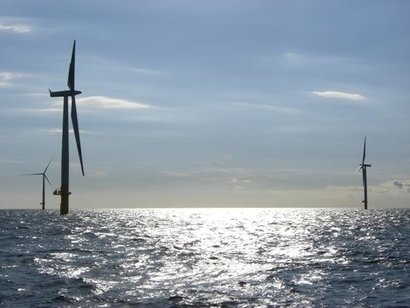
The report, ‘Approaching the tipping point: how corporate users are redefining global electricity markets’, was published by the RE100 campaign, led by The Climate Group in partnership with CDP. It finds that the UK, Spain, Germany and the Netherlands have benefitted most from corporate consumption and investment in renewable energy and that some multinationals are actively reshaping the energy market through their global investment decisions.
The report tracks progress made in 2016-17 by companies committed to 100 percent renewable power as part of the initiative. In Europe, the findings show that renewable energy has been the main source of electricity for RE100 members for the second year running. Renewable energy consumption from Power Purchase Agreements has almost doubled (to 704,300 MWh). This only represents 4 percent of RE100’s members reported renewable electricity consumption from Europe, highlighting a relatively untapped market.
The lucrative PPA market represents an opportunity for investment in Europe’s energy infrastructure. Regional policies remain the main barrier to renewables adoption - there is strong variation reflecting the diversity of the legislative frameworks across member states – 63 percent of the electricity purchased through PPAs in Europe was in the UK alone where the policy framework has encouraged investment, with the remainder being primarily in renewables-friendly territories such as Ireland, the Netherlands and Scandinavia.
Other key findings from the report show that green electricity contracts with suppliers are the preferred option in Europe, making up 63 percent of the total renewable energy consumption. Renewable electricity generation from on-site facilities owned by companies has increased more than twelvefold in Europe in 2016, in line with global trends. Three European companies achieved their RE100 target in 2016, including Elopak Inc, Marks & Spencer and Sky PLC. Meanwhile, Crédit Agricole reached 100 percent renewable electricity in France and Commerzbank continued to source 100 percent renewable electricity in Germany.
In addition, the report shows that the highest proportion of members sourcing renewables is from the European market, reaching 61 percent in 2016, with the UK, Spain, Germany and the Netherlands being the main geographies for renewable energy consumption.
New European multinationals French food giant Danone and British consumer goods group Reckitt Benckiser Group plc have announced a commitment to the RE100 global initiative. Danone is targeting 100 percent renewable electricity by 2030 (50 percent by 2020). Reckitt Benckiser Group plc – which owns ‘Powerbrands’ such as Durex, Air Wick and Dettol – has also committed to sourcing 100 percent renewable electricity by 2030.
“With more than 100 international corporations now committed to sourcing 100 percent renewable electricity through RE100, we need to see better, more supportive policies in Europe that can help remove the barriers to going renewable” said Sam Kimmins, Head of RE100 at The Climate Group.”
The global proportion of renewable electricity being sourced via power purchase agreements grew fourfold in 2016, while the quantity of electricity sourced from onsite generation increased fifteen-fold (via supplier-owned projects) and ninefold (via member-owned projects). 88 percent of respondents cited the compelling economic case for renewable electricity as a major driver – with 30 out of 74 reporting that renewable electricity was already either cost competitive or delivered significant savings on energy bills.
RE100 now brings together 122 global companies, with a collective revenue of over $2.75 trillion and operations spanning six continents. Together they represent over 159 TWh of demand for renewable electricity – more than enough to power Malaysia, New York State or Poland, and equivalent to the 24th largest electricity demand of all countries.
For additional information:

